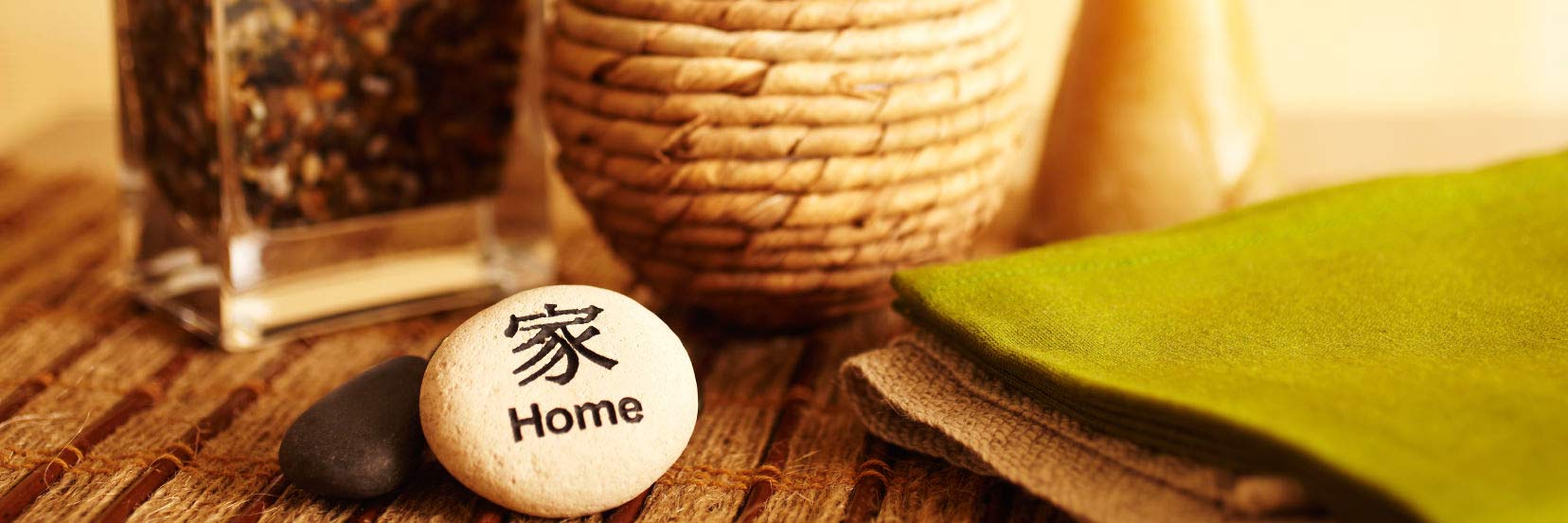Feng shui is the ancient Chinese practice of design that focuses on studying and manipulating how our environments affect us. Using feng shui can help us increase energy, sleep better, and generally influence how we feel, mentally and physically. The idea is that how our surroundings are arranged can provide three major effects in our lives. Proper placement of objects can:
- Enhance chi (or qi), the vital energy that flows through us.
- Banish negative energy, or sha chi.
- Create balance in our surroundings through the inclusion of aspects of the five forms of nature — fire, earth, wood, water, and metal.
Does Feng Shui Really Work?
The practice of feng shui (which means wind-water) is certainly nothing new; it’s been used for at least 5000 years. But even today, many peoples’ experiences indicate that employing feng shui techniques can help promote health and wellness at home, work, and even in a hospital setting.
Many of the teachings of feng shui are common sense. For instance, most people agree that having a television in the bedroom is generally not a good idea to promote sleep, and plants have long been known to clean the air and promote health.
How Can Feng Shui Decrease Stress?
Practicing many of the aspects of feng shui can help promote relaxation. For instance, eliminating clutter in the home, getting rid of items that you do not find harmonious, and tossing out anything broken or damaged can lead to better energy flow and less bombardment on your senses. By creating harmony within your environments, you can sleep better and give your body a head start on handling any stress in your life. You can find tips for reducing the clutter in your home here: “Clutter: An Overlooked Cause of Stress.”
Easy Ways to Use Feng Shui
It’s easy to work in a bit of feng shui at home, but many people don’t realize how easy it is to also rearrange their work areas to promote wellness. Try a few of these tips to manipulate your own space into a place of soothing harmony.
- Lighting. Unless you are trying to relax or create a subdued mood, rooms should be brightly lit.
- Color. Red enhances energy, blue is soothing, and purple promotes spiritual awareness. Using the right color is vital to creating an environment that is beneficial to the individual and also conducive to the space’s intended use.
- Nature. Adding aspects of nature to a space automatically reduces stress. Decorating with plants, fresh flowers, moving water, fish tanks, and images of nature is soothing.
- Furniture and fixtures. Rooms should house items that reflect the space’s purpose. Keep the television out of the bedroom and make sure that decorative items are placed high enough to draw the eye upward and improve attention. Move items away from your bed that will distress you when you first wake up. For example, don’t keep the basket of ironing or dirty laundry in view.
- Aromatherapy. Using scents that promote tranquility in the bedroom and energy in the work area are crucial to creating the right atmosphere in any space. Citrus, mint, or juniper scents work well for motivation; lavender, lemon, and rose scents relieve tension. Feeling blue? Try orange, jasmine, or geranium to uplift your mood.
Final Words
Making a few simple changes to your work space or the various rooms in your home can go a long way toward quieting your mind and relieving your stress
